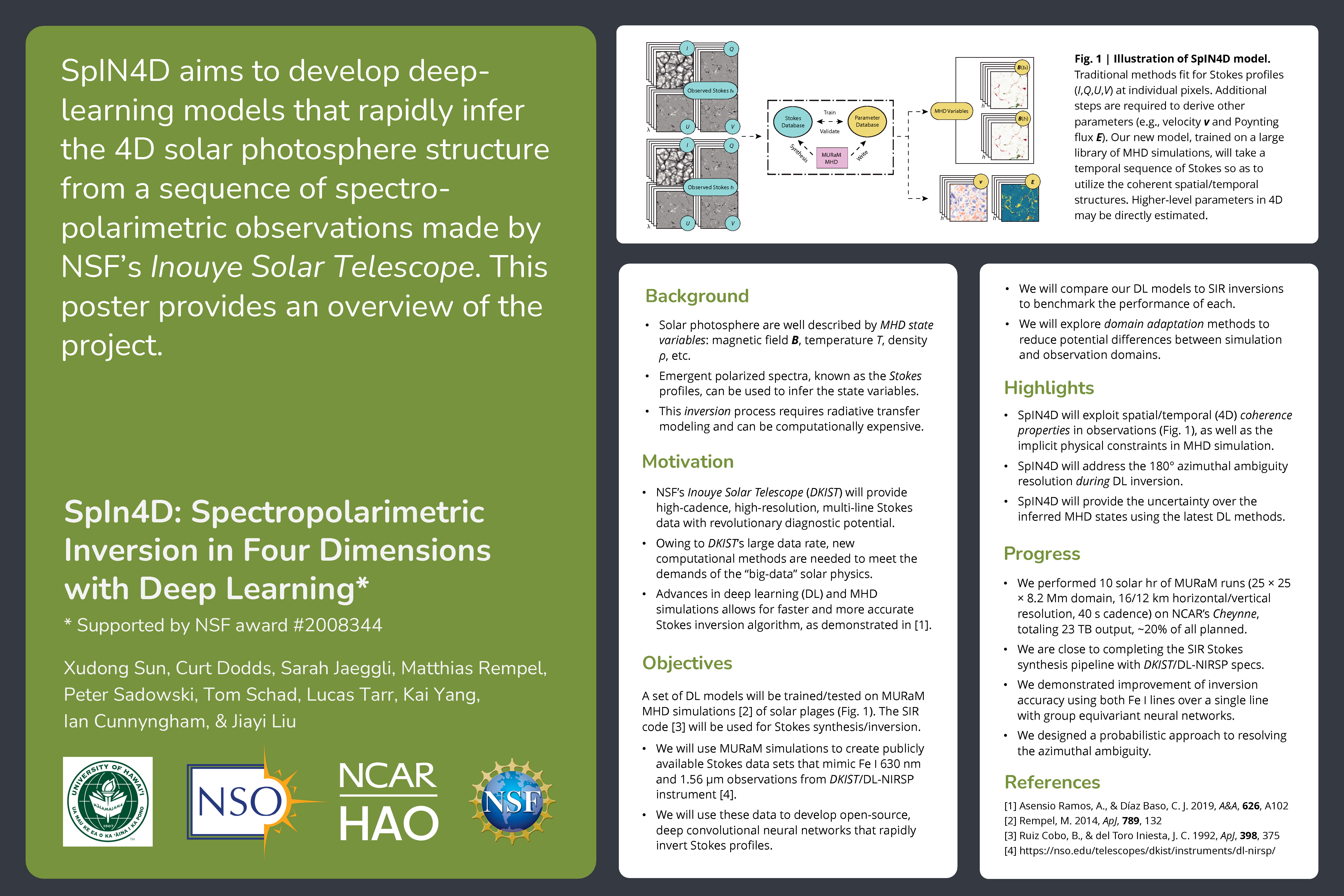Authors: Xudong Sun (U Hawaii), Curt Dodds (U Hawaii), Sarah Jaeggli (NSO), Matthias Rempel (NCAR), Peter Sadowski (U Hawaii), Thomas Schad (NSO), Lucas Tarr (NSO), Kai Yang (U Hawaii), Ian Cunnyngham (U Hawaii), Jiayi Liu (U Hawaii)
The National Science Foundation’s Daniel K. Inouye Solar Telescope (DKIST) will provide high-cadence, high-resolution, and multi-line measurements of the solar photosphere. New algorithms are required to meet the demand of the large data volume and to exploit the spatiotemporal information encoded in the polarized spectra. Here, we describe an NSF-funded project that aims to perform spectropolarimetric inversion in four dimensions with Deep Learning (SpIn4D). We first perform realistic magnetohydrodynamic (MHD) simulations of the solar photosphere, and forward synthesize a large library of DKIST-like spectra. Using these spectra as the input and the known MHD ground-truth as the target, we then train, validate, and benchmark a set of convolutional neural networks that can rapidly infer the physical variables of interest. Finally, as DKIST data become available, we will apply adversarial domain adaptation techniques to reduce the systematic differences between simulated and real data.



